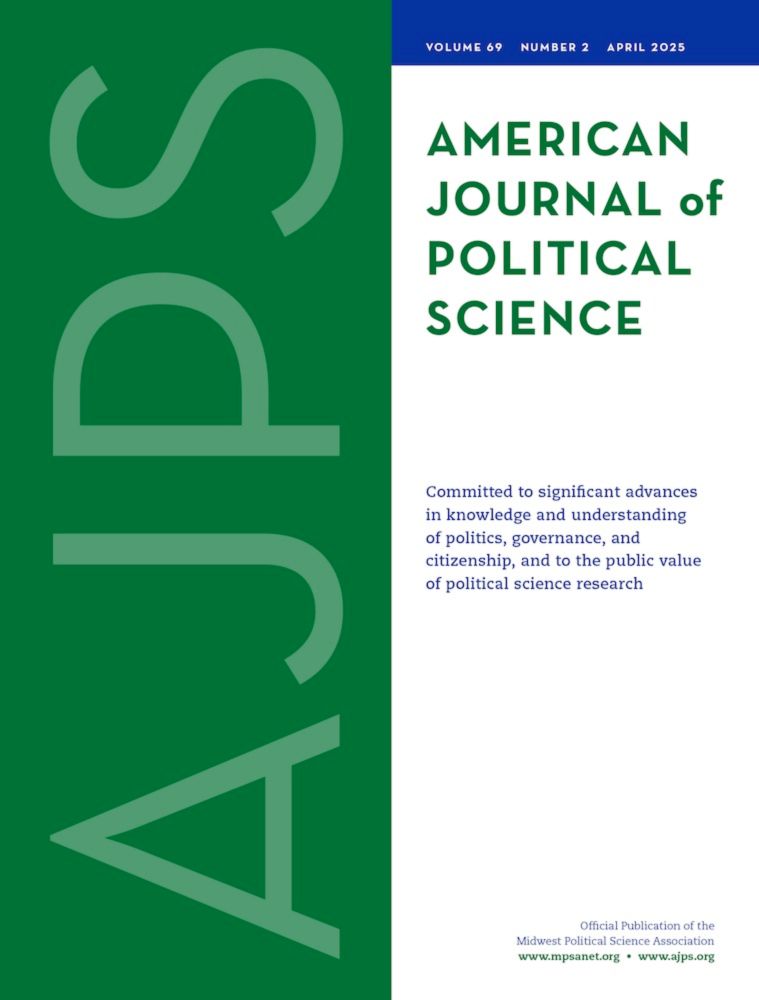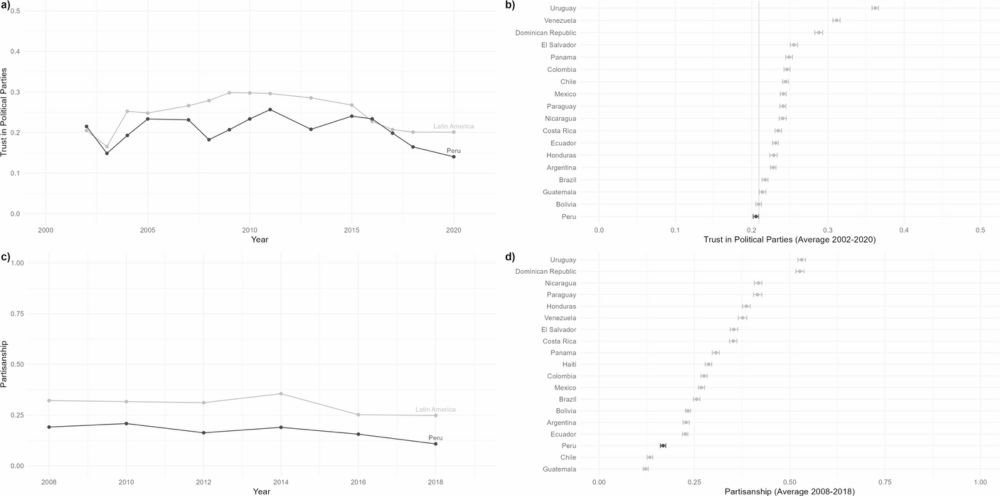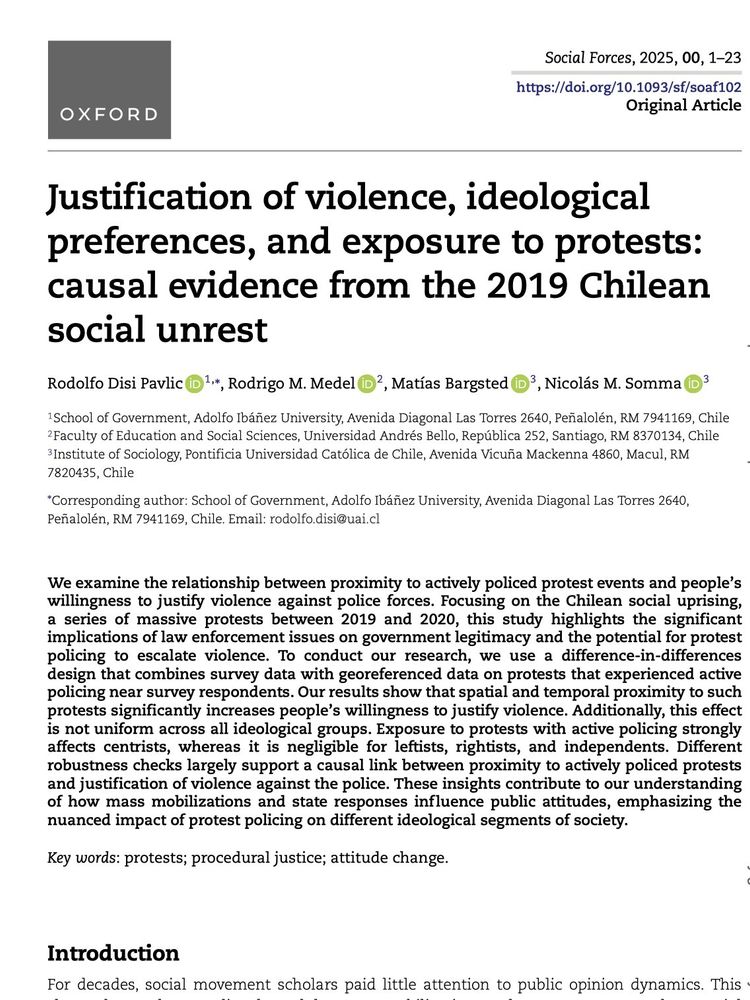Nicolás de la Cerda
@ndelacerda.bsky.social
360 followers
630 following
21 posts
Post-Doctoral Fellow
Center for Inter-American Policy and Research
Tulane University
Posts
Media
Videos
Starter Packs
Reposted by Nicolás de la Cerda
Reposted by Nicolás de la Cerda
Reposted by Nicolás de la Cerda
Reposted by Nicolás de la Cerda
Reposted by Nicolás de la Cerda
APSA
@apsa.bsky.social
· Jul 22

Joséphine Lechartre Receives the 2025 Gabriel A. Almond Award for “Genocide and Cultural Change: Civilian Survival Strategies and the Reinvention of Political Culture During Guatemala’s Mayan Genocide”
The Gabriel A. Almond Award is presented annually by the American Political Science Association (APSA) to honor the best doctoral dissertation in the field of comparative politics. Citation from the Award Committee: After reviewing a large number of excellent dissertations, the committee has unanimously selected for the Gabriel A. Almond Award Joséphine Lechartre’s exceptional work, “Genocide and Cultural Change: Civilian Survival Strategies and the Reinvention of Political Culture During Guatemala’s Mayan Genocide.”
politicalsciencenow.com
Reposted by Nicolás de la Cerda
Simon Weschle
@simonweschle.bsky.social
· Jul 11

American Journal of Political Science | MPSA Journal | Wiley Online Library
We provide a comprehensive theoretical and empirical account of the relationship between campaign finance pressures and the wealth of politicians. We argue that the heavily right-skewed wealth distri...
onlinelibrary.wiley.com
Reposted by Nicolás de la Cerda
Reposted by Nicolás de la Cerda
Reposted by Nicolás de la Cerda
Reposted by Nicolás de la Cerda
Reposted by Nicolás de la Cerda










